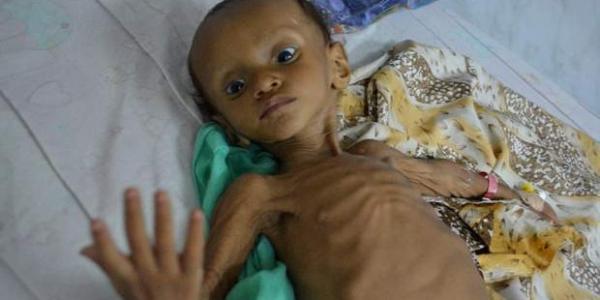84,625 children with severe acute malnutrition in South Sudan were treated in inpatient and outpatient therapeutic centers since the beginning of the year, UNICEF announced. This is one of the many results that UNICEF and its partners have been able to obtain in the challenging environment of COVID-19, which is continuing to unfold across South Sudan.
The number of cases of COVID-19 in South Sudan is rapidly growing, as are the number of deaths related to the disease. UNICEF has been at the forefront of the COVID-19 response, coordinating with the Government efforts in promoting access to water, sanitation and hygiene to prevent and control infections, as well as risk communication and community engagement to ensure communities are informed and engaged in applying preventive and mitigation measures against infections.
“While we are engaged in the response to the COVID-19 disease along with our partners, we continue as much as possible to implement our regular programmes to ensure access to critical and life-saving health and nutrition services for children, addressing severe acute malnutrition and child deadly diseases such as malaria, acute respiratory infections and diarrhoeal diseases”, said Dr Mohamed Ag Ayoya, the UNICEF Representative in South Sudan. “Not doing so would condemn a much larger number of children in South Sudan to illness and possibly even death. We cannot accept that to happen.”
Along with its partners, UNICEF is also pursuing interventions to ensure access to water, sanitation and hygiene to the most in need, and to implement child protection services.
Between January and May 2020, UNICEF and its partners have:
- Reached 1.6 million children with vitamin A supplementation;
- Vaccinated 169,300 children against measles through routine vaccination;
- Vaccinated 1.4 million children under 5 years of age during measles follow-up campaigns in 54 counties;
- Distributed 102,700 insecticide treated bed nets to children and pregnant women in malaria affected areas;
- Ensured access to an additional 237,000 people with a sufficient quantity of safe water for drinking, cooking and personal hygiene;
- Provided psychosocial support services to 12,300 children.
“Delivering on those results is not an easy task in times of COVID-19, as we need to put in place additional protection measures to avoid children and their family members getting infected while being served by our programmes”, stressed Dr Ayoya. “Because of the restriction on movement measures put in place to contain the spread of COVID-19, we have also been struggling to travel and to deliver supplies throughout the country, and some of our programmes had to be postponed or scaled down. We hope that the conditions will allow restrictions of movement to be eased soon.”
COVID-19 has disrupted learning for 2 million South Sudanese children who are enrolled in primary and secondary schools as schools were shut down in March. To respond to the closure of schools, UNICEF and partners have supported the Ministry of Education in setting up a remote learning programme via radios, allowing children to continue their education. Over 800,000 children are expected to benefit from this programme.
While the remote learning programme has allowed many children to continue their education, it cannot reach all children. Nor can it fully replace learning in school and the direct contact between children and teachers. UNICEF is currently working with the Government to work on creating the necessary conditions for schools to re-open as early as possible so that children can resume their education.
“As it has become obvious that COVID-19 will be part of the reality of South Sudan for a while, it is clear that all must be done to ensure that children continue to receive the basic services in health, nutrition, education, WASH and protection, that they are entitled to, while we continue to address the challenges of the COVID-19 pandemic”, concluded Dr Ayoya.


